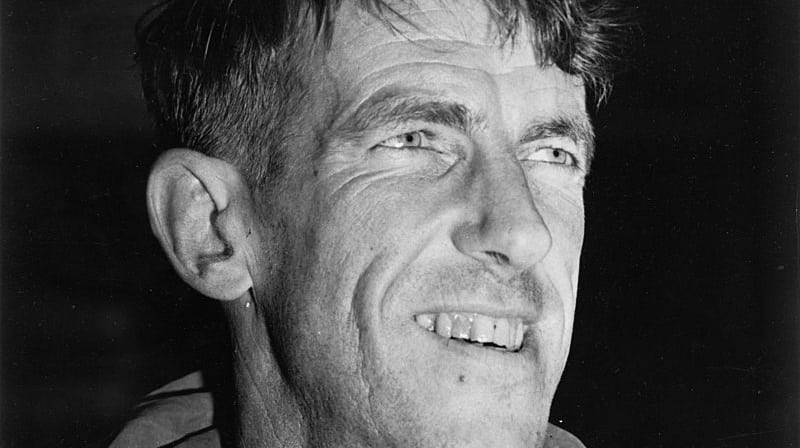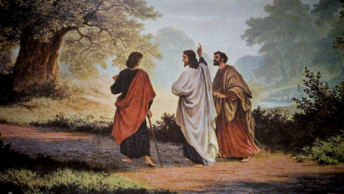An explorer and adventurer from New Zealand named Edmund Hillary wanted to do something no one else had done, so he set his sight on the highest mountain in the world: Mount Everest, in the Himalayan Mountain range on the border between the Asian countries of Nepal and Tibet. Eight previous attempts to climb it had failed, but Hillary was determined to succeed. He obtained an experienced guide from the Sherpas, the ethnic tribe who lived in the area, and on May 19, 1953, he and his guide became the first persons to stand on the highest point on earth. Because of this achievement, Hillary’s life changed dramatically. He became an international celebrity; his name was used as a logo on sleeping bags, tents, and boot laces, and he was knighted by Queen Elizabeth of England. Instead of basking in his popularity and success, however, Hillary felt a need to do something even more important and lasting. An elderly man from the village where most of the Sherpas lived had told him, “Our children lack education, and are unprepared for the future; what we need more than anything is a school.” In response, Hillary established a charitable organization called the Himalayan Trust, and from then on spent much of his time traveling the globe and raising money. During the remainder of his life, the trust he created built twenty-eight schools, two hospitals, twelve medical clinics, and numerous bridges and airfields (William J. Bausch, 40 More Seasonal Homilies, p. 49).
Sir Edmund Hillary used the celebrity and influence he gained from going up a mountain to make a real and lasting difference in the valley down below. In the same way, when we receive great blessings from God or have wonderful spiritual experiences, we’re supposed to let them change our everyday lives. If, in some symbolic way, God allows us to have a glimpse of Heaven, His purpose is to inspire us to recommit ourselves to fulfilling our mission here on earth.
Climbing a mountain has always been used as a symbol of trying to rise above everyday concerns and discover God. Jesus took three of His apostles to the top of Mount Tabor in Galilee and there allowed them to witness a visible sign of His divine glory, seeing His transfigured appearance and hearing the voice of God Himself. This unique, mystical experience was intended to strengthen the apostles’ faith in preparation for the coming scandal of the cross. In the Book of Genesis (22:1-2, 9, 10-13, 15-18), God tested the faith of His servant Abraham, but did not in fact require him to sacrifice his beloved son Isaac. St. Paul tells us in the Letter to the Romans (8:31-34), however, that the Lord God Himself actually made the sacrifice He only pretended to ask of Abraham: He sent His Son Jesus to die on our behalf. This was what Moses and Elijah were discussing with Jesus; this truth was so breathtaking and unexpected it’s no wonder the apostles were questioning among themselves what “rising from the dead” meant. Going up Mount Tabor changed their perspective on things, even after they came down from the mountain.
In the 17th century a French soldier wounded in battle left the army and joined a Carmelite monastery in Paris. He took the name Brother Lawrence, and spent the rest of his life doing two things: working the monastery kitchen, and constantly coming closer to God. These two actually went hand-in-hand, for as he once said, “God can be found among the pots and pans.” Brother Lawrence also wrote one of the most influential and helpful spiritual books in religious history: The Practice of the Presence of God, in which he stated, “It isn’t necessary that we stay in church to remain in God’s presence. We can make our hearts personal chapels where we can enter anytime to talk to God privately.” In other words, we don’t have to limit our experiences of God to the “mountain times” of Mass, Eucharistic Adoration, and other prayers and devotions here in church; we can and should also be with God down in the valleys of our daily duties and chores, our relationships and routine encounters, and our times of leisure and rest.
In parish life, pastors try very hard to provide everyone with “mountain experiences” of God’s presence: well-planned and reverent liturgies, numerous opportunities for Eucharistic Adoration and various other devotions, frequent and varied adult education opportunities, Christian service projects, family events, social activities, and the like. In all honesty, we’re sometimes discouraged more people don’t take part in these things, and concerned that it’s sometimes difficult to recruit needed volunteers. The greater concern, however, is whether those who are touched by God during these mountain experiences or high points actually take that special grace back with them into daily life. Five weeks from now, parishes across our country will have very beautiful, moving, and spiritually enriching liturgies on Easter Sunday, and at each Mass the church will be filled almost to capacity. Sadly, many of the people who come won’t return again until Christmas; for whatever reason, those persons apparently won’t take the grace of that encounter with God and live it out the rest of week, as indicated by their absence at Mass the Sunday after Easter.
We’re in no position to judge them, of course, for we ourselves may be failing to respond wholeheartedly to the blessings we’ve received from God. This is one of the primary purposes and benefits of Lent: the opportunity to examine our consciences, asking ourselves if we’re truly putting God at the center of our lives—not only on Sundays, but throughout the week, and not only here in church, but everywhere we go. Do we offer up our daily labors and activities for God’s glory? Do we allow the Lord to guide us in our finances and business and career decisions? Do we see our encounters with people on the job, at school, or in the marketplace as a chance to witness to Christ by our words and example? Does our treatment of our family members demonstrate our genuine desire to be part of God’s family? In the midst of our leisure and relaxation, do we find regular time for prayer or Scripture reading? Sir Edmund Hillary was on the top of Mount Everest for only a short while, but he let that glorious moment inspire him to live a life of service and compassion from then on. In the same way, Jesus wants us not only to grow in our faith, but also to live it out each day in a very practical, down-to-earth manner. Finding, serving, and loving God in the mist of our daily responsibilities and activities is essential if we wish one day to live in Heaven. Therefore, let us go up the mountain with Jesus, and then come back down and make a difference in His Name.








